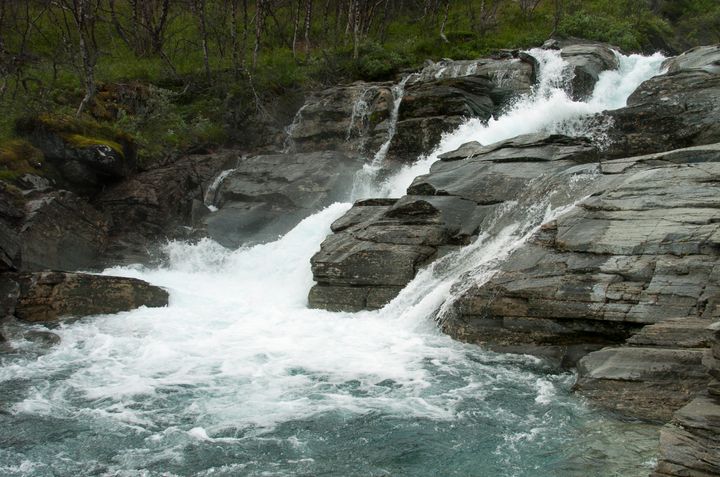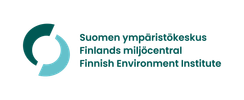Tackling Europe´s water problems requires new ways of governance
Three new research and innovation projects tackle Europe’s water problems by putting into test collaborative and cross-sectoral solutions.

Water has been poised to be the next crisis for Europe. Devastating droughts and floods have caused significant economic, social and environmental damages and are expected to be further exacerbated with climate change. Aquatic ecosystems continue to be severely affected by pollution and hydromorphological changes. While water scarcity has pushed several European countries to restrict water use, leakages and losses from drinking water systems are on average as high as 25%.
Water problems are problems of governance
Behind all these water problems lay governance challenges. While technical solutions and regulatory frameworks are in place, their implementation is lacking.
New solutions are needed to improve public policy integration, coherence and coordination. Active participation and collaboration of both water using sectors and citizens throughout the policy landscape is required, from problem analysis to planning and evaluation. A special emphasis needs to be put on the appropriate valuation of water, including water rights and allocation mechanism and economic and financial schemes. Decision making needs to be built on robust data and knowledge sharing systems, also enabling holding the different stakeholders accountable for their actions.
New ways of water governance in focus in 17 sites across 13 countries
A cluster of three new research and innovation projects funded under the Horizon Europe programme by the European Commission seeks to tackle Europe’s water challenges through the development, assessment, and validation of good practices in the afore mentioned fields.
Innovative mechanisms and approaches to enhance water governance are put into test in 17 different locations across the continent in 13 EU Member States, ranging from agricultural regions to urban areas and local catchments to national level experience sharing.
The cases cover a wide range of issues, including water allocation and reconciling competing needs in Germany, Hungary, Malta and Spain; water markets and tariffs in France, pricing mechanisms in Belgium and corporate water stewardship and blended financing in Finland; water quality monitoring and management in the Netherlands and the UK; integrated water and soil management in Slovakia and ecosystem services and environmental restoration in Italy and Romania; and sustainable hydropower in Finland and Sweden.
Project details
Governance innovations for a transition to sustainable and equitable water use in Europe (GOVAQUA)
- Member States in focus: Finland, France, Romania, Spain, Sweden, the UK
- Contact: Coordinator Suvi Sojamo, Finnish Environment Institute suvi.sojamo@syke.fi, Tel. +358 29 525 1049
Promoting social innovation to renew multi-level and cross sector water governance (InnWater)
- Member States in focus: France, Italy, Hungary, Spain, the UK
- Contact: Coordinator Natacha Amorsi, International Office for Water, n.amorsi@oieau.fr, Tel. +33 5 55 11 47 88
Resilient Water Governance Under Climate Change Within the WEFE NEXUS (RETOUCH NEXUS)
- Member states in focus: Belgium, Germany, Malta, the Netherlands, Slovakia, Spain
- Contact: Coordinator Maria Vrachioli, Technical University of Munich, maria.vrachioli@tum.de, Tel. +49 8161 71 6320
Keywords
Contacts
Media service at Finnish Environment Institute
Our Media Service provides information on research, helps journalists find experts for interviews and provides photos for media use.
Our Communication experts will answer your inquiries on weekdays from 9 am to 4 pm.
It is time to move beyond solving environmental problems one by one, to systemic sustainability transformations. The Finnish Environment Institute (Syke) contributes to building a sustainable society through research, information and services. The Finnish Environment Institute is a research institute with 700 experts and researchers located in Helsinki, Oulu, Jyväskylä and Joensuu.
Subscribe to releases from Suomen ympäristökeskus
Subscribe to all the latest releases from Suomen ympäristökeskus by registering your e-mail address below. You can unsubscribe at any time.
Latest releases from Suomen ympäristökeskus
Antalet observationer av cyanobakterier har ökat något i insjöar, längs kusten och i öppna havsområden i Finska viken3.7.2025 13:07:32 EEST | Pressmeddelande
Situationen med cyanobakterier i insjöar utvecklas på ett sätt som är typiskt för högsommaren, medan det vid kustområden har observerats något färre alger än vanligt. I östra Finska viken har cyanobakterier dock observerats både vid kusten och på öppet hav. De kraftiga vindarna i slutet av veckan blandar om vattnet och gör det svårare att observera algerna.
The number of blue-green algae observations has slightly increased in inland waters, along the coast, and in the open sea areas of the Gulf of Finland3.7.2025 13:06:05 EEST | Press release
The blue-green algae situation in inland waters is progressing in a manner typical for midsummer, while slightly less algae than usual have been observed in coastal areas. However, in the eastern Gulf of Finland, blue-green algae have been detected both along the coast and in open sea areas. Strong winds later in the week will mix the water, making it more difficult to observe the algae.
Sinilevähavaintojen määrä lisääntynyt hieman sisävesillä, rannikolla ja Suomenlahden avomerialueilla3.7.2025 13:00:00 EEST | Tiedote
Sisävesien sinilevätilanne etenee keskikesälle tyypilliseen tapaan, rannikkoalueilla levää on puolestaan havaittu hieman tavallista vähemmän. Itäisellä Suomenlahdella sinilevää on kuitenkin havaittavissa niin rannikolla kuin avomerialueilla. Loppuviikon kovat tuulet sekoittavat sinilevän veteen vaikeuttaen sen havainnointia.
Finnish Environment Institute and Kuva Space partner to enhance water quality monitoring3.7.2025 10:32:15 EEST | Press release
This public-private partnership will test the use of hyperspectral satellite observations in developing further the national algae monitoring.
Suomen ympäristökeskus ja Kuva Space käynnistävät yhteistyön veden laadun seurannan parantamiseksi3.7.2025 10:30:00 EEST | Tiedote
Julkisen ja yksityisen sektorin yhteistyöhanke testaa suomalaisten hyperspektraalisten satelliittihavaintojen käyttöä valtakunnallisen leväseurannan kehittämisessä.
In our pressroom you can read all our latest releases, find our press contacts, images, documents and other relevant information about us.
Visit our pressroom